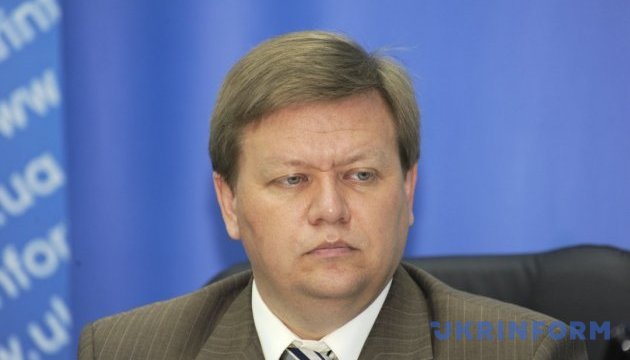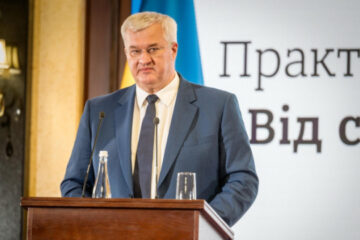
With the OPEC’s new policy, decreasing oil prices to USD 40-50 per barrel of Brent crude oil will significantly limit the aggressor’s hydrocarbon revenues.
The relevant statement was made by Hennadii Riabtsev, an energy expert, in a commentary to Ukrinform.
According to Riabtsev, the additional measures against Russian oil exports, envisaged in the European Union’s recently approved 18th package of sanctions, do not add anything fundamentally new to the current restrictive regime. However, they do limit the number of loopholes that Russian exporters have used to circumvent international sanctions.
“In particular, with the new package, the European Union has imposed sanctions against 105 more tankers of the so-called ‘shadow fleet’, and now there are more than 400 of them, but American investigators estimate the number of vessels transporting Russian oil at 900… And the restrictions that have been introduced in terms of providing logistics, insurance, and financial services to Russian contractors, which we call for some reason ‘oil price restrictions’, will, of course, primarily apply to European companies, and not to players from third countries,” Riabtsev emphasized.
In his words, restrictions on purchases of energy resources will become irreversible only after a while [the EU is planning to completely abandon oil and gas imports from Russia by late 2027 – Ed.], which in the short term does not allow us to hope for a tangible effect without a significant drop in global oil prices. Only such a decrease, according to the analyst, will really hit Russia’s war financing.
As explained by Riabtsev, the effect of the current sanctions is not very noticeable yet, because they affect no more than 43-45% of Russian exports. Russia has the opportunity to redirect certain extracted resources to other regions for consumers who have not joined the international sanctions regime.
“In addition, sanctions will have a significant impact only if quotations on the global oil market fall to a level that corresponds to the real ratio between demand and supply. Currently, due to the previous policy of OPEC and OPEC+ member states, these quotations are overstated by at least a third. However, if the OPEC’s current policy, which replaced the previous one, is implemented, sanctions will become much more effective in the near future. According to the new policy, the cartel member states are planning to increase oil production in order to oust exporters with higher production costs from the market,” Riabtsev told.
The list of countries with high production costs includes, in particular, Venezuela, certain African countries (for example, Nigeria), and even some companies from the United States. But, most importantly, the Russian Federation. If this idea works, then increasing supply in the market, which already has a surplus of oil, will lead to a decrease in quotations to USD 40-50 per barrel of Brent crude oil (approximately USD 30-40 for Russian Urals, respectively). The expert believes that this will open the way to the real impact of sanctions imposed by the EU, the British Commonwealth and the United States against Russian exporters.
A reminder that, on July 18, 2025, the European Union approved its 18th package of sanctions against the Russian Federation – described as one of the toughest to date.
Source: Global oil prices dropping to $40-50 to reduce Russia’s revenues significantly – expert’s opinion



